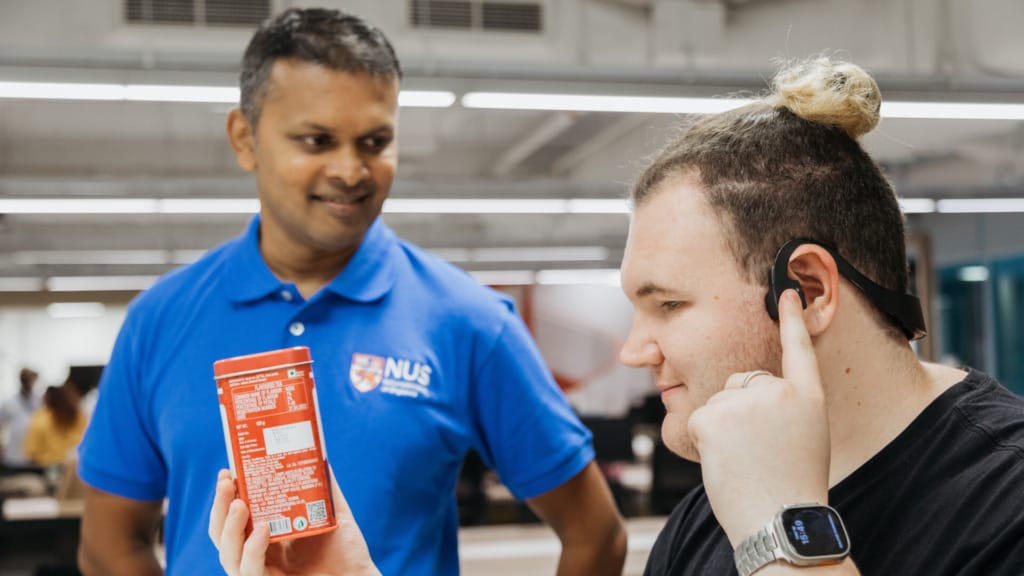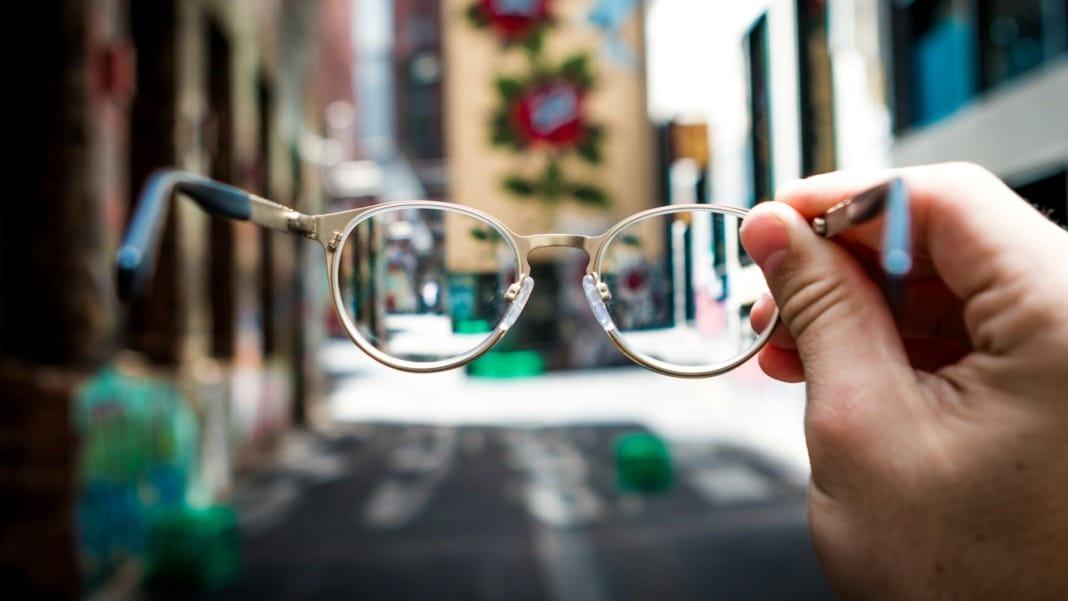For the visually impaired, daily tasks that many of us take for granted can be a significant challenge. Simple grocery shopping or identifying objects in their surroundings can become daunting. However, a team of researchers from the National University of Singapore’s School of Computing (NUS Computing) has taken a significant step towards addressing this issue. They have introduced AiSee, an innovative and affordable wearable assistive device that harnesses the power of artificial intelligence (AI) to help visually impaired individuals “see” the world around them.
A breakthrough solution
AiSee is not just another wearable device; it represents a significant leap in assistive technology for the visually impaired. Its self-contained nature sets it apart from most other devices in the market. Unlike many other wearable assistive devices that require pairing with a smartphone or other external devices, AiSee operates independently. This means that users do not need additional gadgets or rely on external devices to make the system work, simplifying their daily routines.
Incorporating bone-conduction technology
One of the most innovative features of AiSee is its incorporation of bone-conduction technology. This cutting-edge technology enables sound transmission through the bones of the skull, allowing individuals with visual impairment to effectively receive auditory information while being aware of external sounds such as conversations or traffic noise. This feature ensures that users can navigate their surroundings safely and confidently.
AI-powered object recognition
AiSee’s primary function is to assist visually impaired individuals in identifying objects in their environment. The user simply needs to hold an object and activate the built-in camera. AiSee then captures an image of the object and utilises cloud-based AI algorithms to process and analyse the image. This process allows AiSee to identify the object and provide relevant information to the user. The device also offers advanced text-to-speech and speech-to-text recognition capabilities, enabling seamless communication between the user and AiSee.

A journey of innovation
AiSee is the result of years of research and development. First developed in 2018, the device has undergone progressive upgrades over five years to reach its current state. During this time, the research team at NUS Computing experimented with various AI models, including Google Vision API and GPT-3, along with different prompts and audio feedback mechanisms. This iterative process allowed them to refine the device’s capabilities and ensure its effectiveness in assisting visually impaired individuals.
User testing and support
To further enhance AiSee’s features and performance, the research team is collaborating with SG Enable in Singapore to conduct extensive user testing with individuals with visual impairments. This valuable feedback will help refine and optimize AiSee to better meet its users’ specific needs. Additionally, the project has received a generous grant of S$150,000 from B.P. De Silva Holdings Pte Ltd, providing essential support for ongoing research and development efforts.
What can we expect from AiSee?
AiSee represents a remarkable advancement in assistive technology for the visually impaired. With its self-contained design, bone-conduction technology, and AI-powered object recognition, this wearable device has the potential to improve the daily lives of individuals with visual impairments significantly. As researchers continue to fine-tune and enhance AiSee through user testing and support, it promises to become an invaluable tool that empowers visually impaired individuals to navigate the world with greater confidence and independence.





